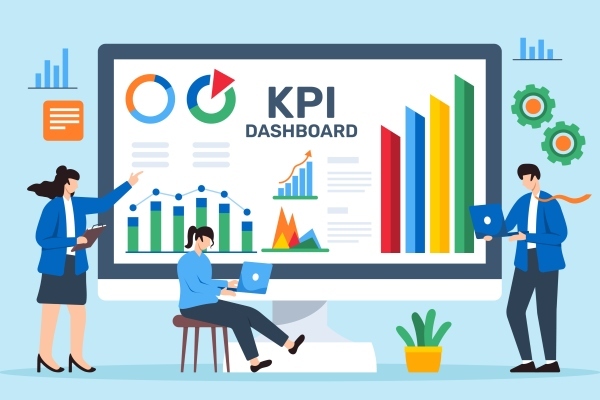
Why Regular Website Maintenance is Essential for Businesses
The online world is ever-evolving, and for businesses to stay competitive, regular website maintenance is vital. Regular website maintenance goes beyond aesthetics; it’s about ensuring your online presence is effective, secure, and capable of meeting your business goals. This article aims to highlight the key reasons why businesses should prioritise website maintenance. We will also offer valuable tips and insights on implementing a successful maintenance strategy. By the end of this article, readers should understand the importance of proactive website maintenance and be equipped with the knowledge to keep their online presence thriving.
Enhancing Website Performance and User Experience
Regular updates and maintenance are crucial for keeping your website running smoothly and ensuring a positive user experience. Outdated websites often struggle with performance issues, such as slow loading times, broken links, and outdated content, which can frustrate users and drive them away. To enhance performance and user experience, several key steps can be taken.
First, set up performance monitoring tools that provide insights into your website’s speed, uptime, and overall functionality. Regularly review website analytics to identify areas that need improvement. Pay attention to metrics such as page load times, bounce rates, and user behaviour flows. Optimise your website’s code, images, and content to ensure fast loading times, especially on mobile devices.
Additionally, conduct regular content audits to keep your website fresh and relevant. Update or remove outdated content, improve navigation, and ensure a seamless user journey. By prioritising performance and user experience, you can create a fast, efficient, and engaging website that meets your users’ needs and expectations.
Maintaining Security and Protecting Data
Websites are frequent targets for cyberattacks, and as such, maintaining security and protecting sensitive data should be a top priority for businesses. Websites are vulnerable to various security threats, including hacking attempts, malware infections, and data breaches. Regular security updates and patches are essential to safeguard your website and data. Here are some tips to enhance security:
Implement robust security measures such as firewalls to create a barrier against unauthorised access and malware. Utilise SSL certificates to encrypt data transmitted between your website and users, protecting sensitive information like login credentials and payment details. Conduct regular security audits to identify and address any vulnerabilities. Stay informed about the latest security threats and best practices to proactively protect your website.
Additionally, ensure you have a comprehensive backup strategy to recover data in the event of a breach or system failure. By prioritising security and data protection, you can build trust with your customers and ensure the resilience of your online business.
Keeping Content Fresh and Relevant
Fresh and engaging content is crucial for the success of your website. Stale and outdated content can give visitors the impression that your business is inactive or unreliable. Regular content updates are essential to maintaining a professional and credible online presence. Here’s how you can keep your content fresh:
Develop a comprehensive content strategy that includes a regular publishing schedule for blog posts, news updates, and informative articles. Share company news, industry insights, and valuable information that showcases your expertise and keeps visitors informed. Update your product or service descriptions regularly, highlighting new features, benefits, and customer testimonials. Engage your audience with interactive content, such as videos, infographics, and surveys, to enhance their experience and encourage repeat visits.
By keeping your content fresh and relevant, you not only improve user engagement but also boost your search engine optimisation (SEO), making it easier for potential customers to find your website and increasing your online visibility.
Adapting to Changing Technology and Design Trends
The world of web design and technology is ever-evolving, and to stay competitive, it’s essential to adapt to these changes. User expectations and search engine rankings are heavily influenced by the latest trends and advancements. Outdated websites risk becoming incompatible with new devices and browsers, leading to a poor user experience and potential loss of customers. Here’s how you can stay ahead:
Stay informed about emerging technologies, trends, and best practices in web design and development. Follow industry resources, attend conferences, and network with professionals to keep up with the latest innovations. Regularly review and update your website design to ensure it remains modern, aesthetically pleasing, and user-friendly. Implement responsive design to ensure your website adapts seamlessly to different devices and screen sizes, providing a consistent user experience.
Implementing an Effective Maintenance Strategy
A well-planned website maintenance strategy is key to ensuring the long-term success and functionality of your online presence. Develop a comprehensive plan that addresses all aspects of maintenance, including technical updates, content freshness, and security protocols.
Define clear objectives and goals for your maintenance plan, ensuring it aligns with your business needs and website goals. Assign roles and responsibilities to your team members, outsourcing specialised tasks if necessary. Create a detailed schedule for regular maintenance tasks, including backups, software updates, security scans, and content reviews. Set up monitoring tools to track website performance, security threats, and user behaviour, allowing you to identify issues promptly.
Conduct regular maintenance reviews to evaluate the effectiveness of your strategy and identify areas for improvement. Stay flexible and adaptable, ensuring your maintenance plan can accommodate changing trends, technologies, and business requirements. By implementing a comprehensive and proactive maintenance strategy, you can keep your website running smoothly and protect your online investment.
In summary, regular website maintenance is crucial for your business to maintain a professional online presence, protect sensitive data, and adapt to evolving user expectations. By neglecting your website’s maintenance, you risk losing credibility, compromising your customers’ security, and missing out on valuable opportunities. To ensure your online success and security, it’s essential to prioritise website maintenance and implement a comprehensive strategy. This means staying proactive, regularly updating your content, fixing broken links, and addressing technical issues before they become major problems. By doing so, you can keep your website running smoothly and effectively connect with your target audience, ultimately driving business growth and success.







